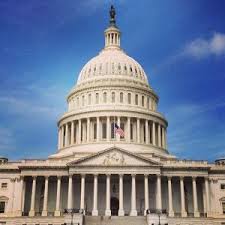Federal government’s bitcoin adviser calls blockchain startups ‘misguided’
By
Paul Chou is an outlier in the super-hot New York City blockchain scene working to build the decentralized ledger technology made popular by bitcoin into the core of Wall Street. While this new crop of venture-backed companies is trying to separate the blockchain from the concept of a cryptocurrency, Chou says the two are inextricably linked and must remain so if the blockchain technology is ever to be widely adopted.
“A lot of the proposals for using blockchain without bitcoin are extremely misguided,” Chou, the cofounder and CEO of LedgerX who previously wrote code for Goldman Sachs, said in an interview with the New York Business Journal. “Maybe incredibly misguided, and certainly not proven.”
The debate over whether bitcoin’s blockchain, some alternative, or group of alternatives might best serve as the foundation of a new, more efficient financial infrastructure is nothing new. Bitcoin purists argue that without an incentive compensating a wide-spread network, blockchain’s power is dulled. Supporters of new applications separate from bitcoin say it’s only a matter of inventing the right solution.
In January we wrote about how the battle for bitcoin dominance has largely become a coastal affair. Heavily funded business-to-consumer bitcoin startups have set up in San Francisco, while blockchain startups building business-to-business services for Wall Street and big banks have their headquarters in New York.
Chou’s company, on the other hand, is building Wall Street products using the bitcoin blockchain from his headquarters at Madison Avenue and 32nd Street. LedgerX has so far raised about $1.5 million in venture capital from Lightspeed Venture Partners, and is in the process of raising another round of investment.
What really sets Chou apart, though, is that he’s also the first bitcoin adviser to the U.S. Commodities and Futures Trading Commission (CFTC), the federal regulatory body which oversees trades in gold, corn and any other commodity. If bitcoin is going to have a derivatives market to help off-set the risks of bitcoin investors — a vital step to its growth — someone is going to have to pass through the CFTC’s gates. Chou hopes LedgerX will be that company.
In September 2014 his team submitted two applications to the committee, one to become a Swap Execution Facility (SEF), for which he was granted provisional status last year. But the real win, which would let investors hedge against their bitcoin investment-risks, is to become a Derivatives Clearing Organization (DCO), an application that is still pending.
Chou, who last month was appointed as a member of the commission’s Technology Advisory Committee, spent Tuesday at an open-meeting of the committee that was attended by about 100 people including CFTC staffers, technologists, and more to discuss the potential application of distributed ledger technology to the derivatives market.
“Before we can make use of this technology, we need to understand it,” CFTC commissioner Sharon Bowen said in a written speech for the event. “Not one, from industry to regulators to consumers, is served if we run head-long toward adopting a new technology that we all do not understand. I therefore hope that today’s discussion on the blockchain’s ledger technology, its public data file of all the transactions, can be safely distributed to the derivatives markets.”
At the meeting, Brooklyn-based Consensys and futures marketplace CME (Nasdaq: CME) joined others in sharing proposals for how blockchain derivatives including bitcoin — but not excluded to just bitcoin — could help create a more robust derivatives market.
“What we’re really hoping,” said Chou, “is that the regulators and staffers can better craft future regulation with their increased understanding of bitcoin and the blockchain after the meeting. But also, that other financial executives in the private industry will start thinking about how they can use it for their own use-cases.”
“The reason the CFTC is an appropriate regulator for bitcoin is that they have jurisdiction over trading of derivatives on any currency or commodity that’s out there,” said Chou. “And so, naturally they have a lot of experience doing so.”
Other regulatory avenues that have been pursued by bitcoin-related startups include New York City based itBit which in May 2015 received the first charter for a bitcoin company to operate as a trust, letting it do business in all 50 states; and Boston-based Circle Internet Financial, which last September won the first “BitLicense” letting it do business in the state of New York.
Bitcoin’s blockchain offers value other than just as an exchange of its eponymous cryptocurrency. Particularly, that its transactions occur nearly instantly compared to the three-day clearing time of many Wall Street transactions, and that the increased transparency of an immutable ledger could make it easier for regulators to track malicious actors and enforce actions.
The prospect of capitalizing on these abilities has proven alluring to several startups, including Digital Asset Holdings, which is backed with $60 million in venture capital from JPMorgan Chase and others; R3CEV, a conglomeration of 42 global banks; Symbiont, which is backed by former chief executive of the New York Stock Exchange, Duncan Niederauer; and Consensys, which last month said it was in talks with 25 investment banks and all “Big Four” accounting firms, and which attended this week’s CFTC meeting.
Also Tuesday, the Wall Street Journal reported that JPMorgan has been testing blockchain transactions for “months” and last month R3CEV announced it had completed its first test of the technology using the Ethereum blockchain. But Chou remains a skeptic.
“The only thing that’s been proven so far is bitcoin as an asset class. It has a market-cap, it’s actively traded, it’s being used by merchants and consumers all the time,” Chou told me. “The other speculative proposals of taking out one element of a complex system and having all the advantages of that system, I don’t think are really correct. I think the second you separate bitcoin from some of the other elements the use-cases of the individual elements are unlikely to be proven, in my view.”
Via:http://www.bizjournals.com/newyork/news/2016/02/24/federal-government-s-bitcoin-adviser-calls.html


